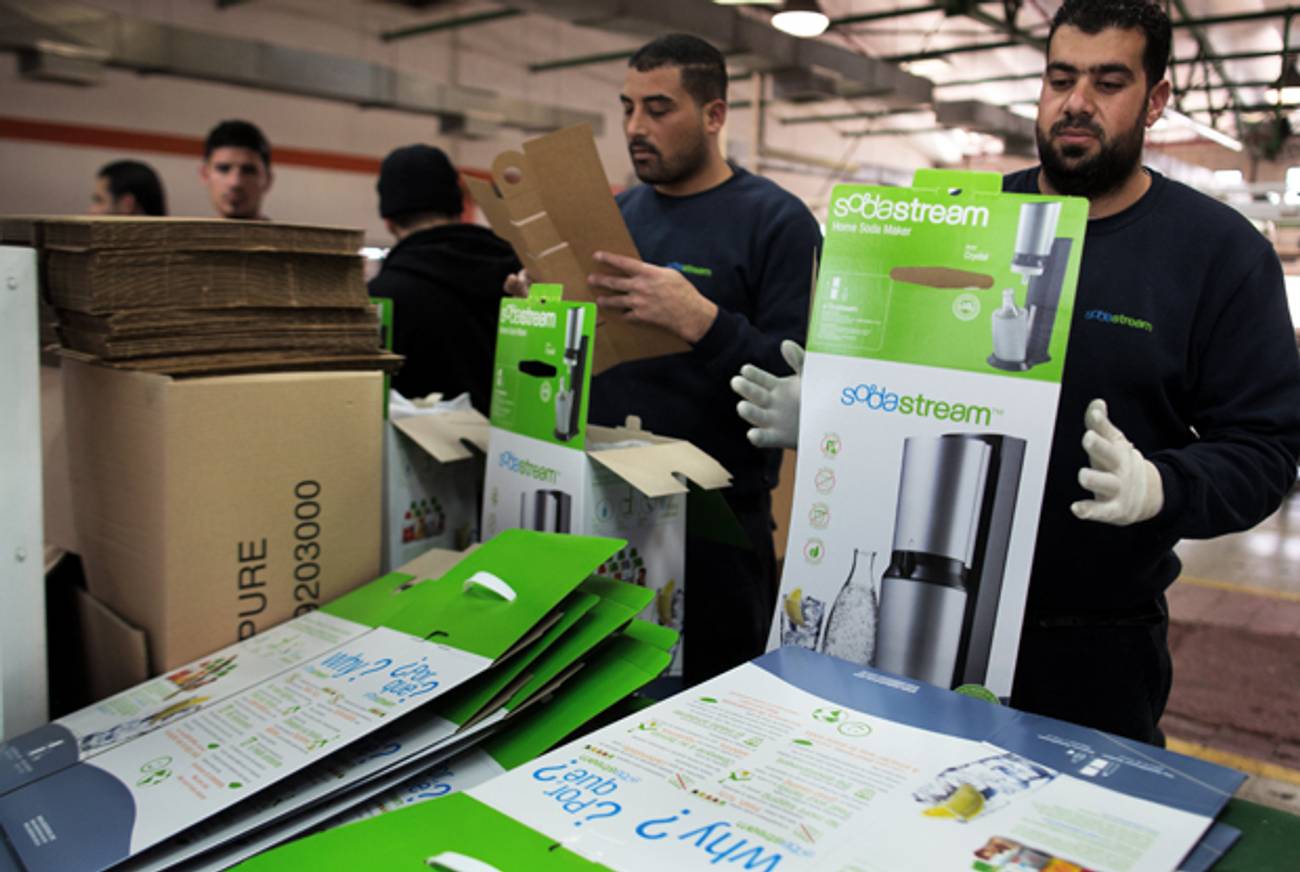Inside SodaStream’s West Bank Factory
Documentary offers a behind-the-scenes look at the controversial company




What’s bubbly, stirs controversy, and is represented by one of Hollywood’s biggest megastars? SodaStream, a company that produces home soda makers and operates a factory in the West Bank settlement of Ma’ale Adumim, which employs 500 Palestinians from Ramallah, Jericho, and other surrounding villages.
Controversy over the company fizzed earlier this year when the twin forces of the Super Bowl and the Boycott, Divestment, and Sanctions—or BDS—movement converged, and superstar Scarlett Johansson, SodaStream’s new celebrity spokesperson, was caught in the middle. Johansson was pressed by BDS supporters to drop SodaStream for operating in the occupied territories of the West Bank. She refused, either because she had no idea the maelstrom she had entered or because she believed, like many others, that a factory that gives jobs to Palestinians can’t be all bad. Johansson ultimately stepped down as an ambassador for Oxfam, citing the humanitarian group’s stance on BDS. The Super Bowl ad came out (it was alarmingly sexual, even though it had been edited to be suitable for children—and for a moment it seemed that the political question had been outdone by the question of taste).
In addition to bringing visibility to BDS, the events function as a cipher for the movement’s challenge to boycott West Bank products. It also raised larger questions about boycotts, and whether a boycott in this instance would do more than deprive a large number of Palestinians of their jobs. Articles claimed that SodaStream was a sweatshop, or that it was a paradise; that Palestinian workers were delighted, or that they were humiliated.
The answer, of course, is that they are both. And that like most things in life, it’s morally complex. At least that’s the perspective taken in the 10-minute documentary The Factory, produced by The Verge, which portrays Sodagate nuance. The film which takes viewers inside SodaStream with 27-year-old Abdallah Hany Abu Zayad, from the village of Izaraye, as our guide. We learn that while Palestinian workers earn more than twice what they would working in Palestinian cities (in large part due to the Israeli occupation), they are also humiliated to be working in a company that they view as illegally operating in the West Bank.
Inside SodaStream it is revealed that Jew works alongside Arab. Abdallah was taught his job by Valery Raiko, an affable Russian. The rhythms of Abdallah’s day—work, pray, play with his kid, smoke, and joke about Scarlett Johansson with other Palestinian workers—are somewhat undercut when he acknowledges that his bosses at SodaStream suggested him for the documentary because “they know I’ll handle it in a way that won’t harm them.” But the overall impression is that though Abdallah opposes settlements, he is glad for his job; “I need to keep living. My life must go on.”
The Factory makes one honest, but crucial, mistake. It treats Abdallah’s moral dilemma as the one that matters, asking whether or not he personally should or should not be working for the company, and focusing on the attendant feelings of that decision. While Abdallah’s subjective experience is interesting and important, it’s not the moral dilemma at the heart of the controversy surrounding SodaStream.
The most important question that could have been addressed by the documentary is one that is never raised: Does Abdallah make the same amount of money as Valery, his Russian-Jewish counterpart? Does he have access to the same legal recourse should he be sexually harassed or break a finger? If not, you have a company paying different races different wages, and a geographic location giving unfair legal representation to different individuals based on their ethnicity. Now that’s something worth bubbling over.
Batya Ungar-Sargon is a freelance writer who lives in New York. Her Twitter feed is @bungarsargon.